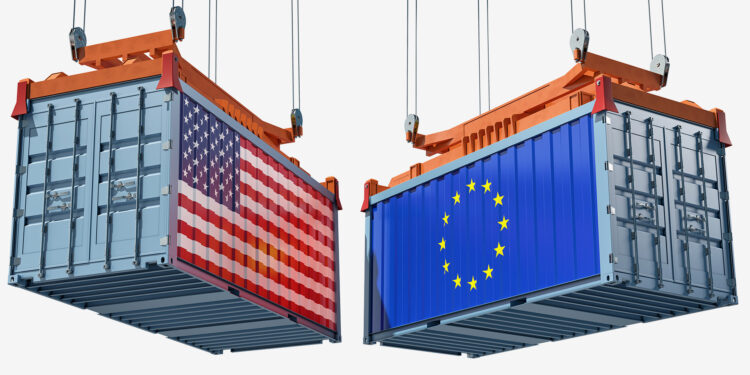A poll conducted by the “Yogov Institute”, whose results were reported by the German News Agency, revealed that 3 quarters of citizens in Germany support the distinction of European goods in German stores.
The survey came in the wake of some major store chains in Denmark by placing a star on European goods a few days ago, to send a signal against the commercial policy of US President Donald Trump.
According to the Ugov Institute for Irrigation Indications, 47% of the Germans “support” completely put distinctive signs on the products coming from Europe, supported this “to some extent” 30% of others, and the poll included 2055 Germany over 18 years.
“Anger and uncertainty are the motive for many people, regional production has always been an important factor in shopping in stores, and the trade conflict is likely to enhance this trend,” said Kai Hodits, CEO of the Cologne Commercial Research Institute.
German food stores are not currently intended to place discriminatory stickers on goods coming from Europe.
“We refuse to boycott or put discriminatory marks because it will affect unwanted manner on non -concerned producers and companies, in the end, our customers decide the product group upon their request,” she said, and she explained that information related to the origin of the products is already visible on the package.
https://www.youtube.com/watch?v=n1jcrhwsnng
German store reactions
“So far, we have received only a few inquiries about this matter from our customers, and if this trend increases in the future, we will study the reasonable extent and the possibility of applying this classification to European products.”
“We offer our customers a wide variety of regional and German products, and complement the selected international products that collection.”
Another poll conducted by the “Yogov” Institute revealed that many consumers in Germany also want to boycott American goods in general, not just food.
When they were asked whether they could imagine continuing to buy American products in light of the conflict over customs duties, 53% of them answered “no, definitely” or “no, probably”.
48% of those who intend to boycott them will deliberately do so for political reasons, while many Germans (44%) said they are not ready to pay higher prices for American products in the context of the conflict on customs duties.
Earlier, a report for the New York Times stated that US President Donald Trump’s insistence on continuing policies exposing the European economy pushing more Europeans to boycott American goods to express their strong frustration with the American administration’s dealings with the old allies.
In a new move, US President Donald Trump announced last Wednesday to impose customs duties by 25% on all car imports and spare parts to the United States starting from April 2, to be permanent.
It is a decision that German counselor Olaf Schultz considered “wrong”, and said that Trump chose a path that would only result in two losers.
Government officials said that Germany and the European Union will defend free trade as a basis for their prosperity, as the European Commission was assigned to manage this process.



